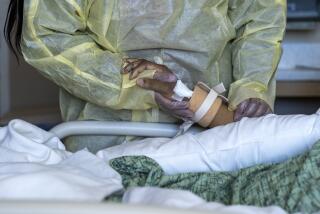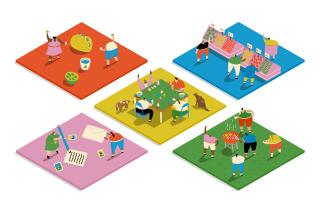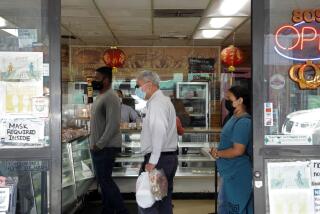Column: A cancer patient needed critical care. Because of the COVID-19 surge, she died without it
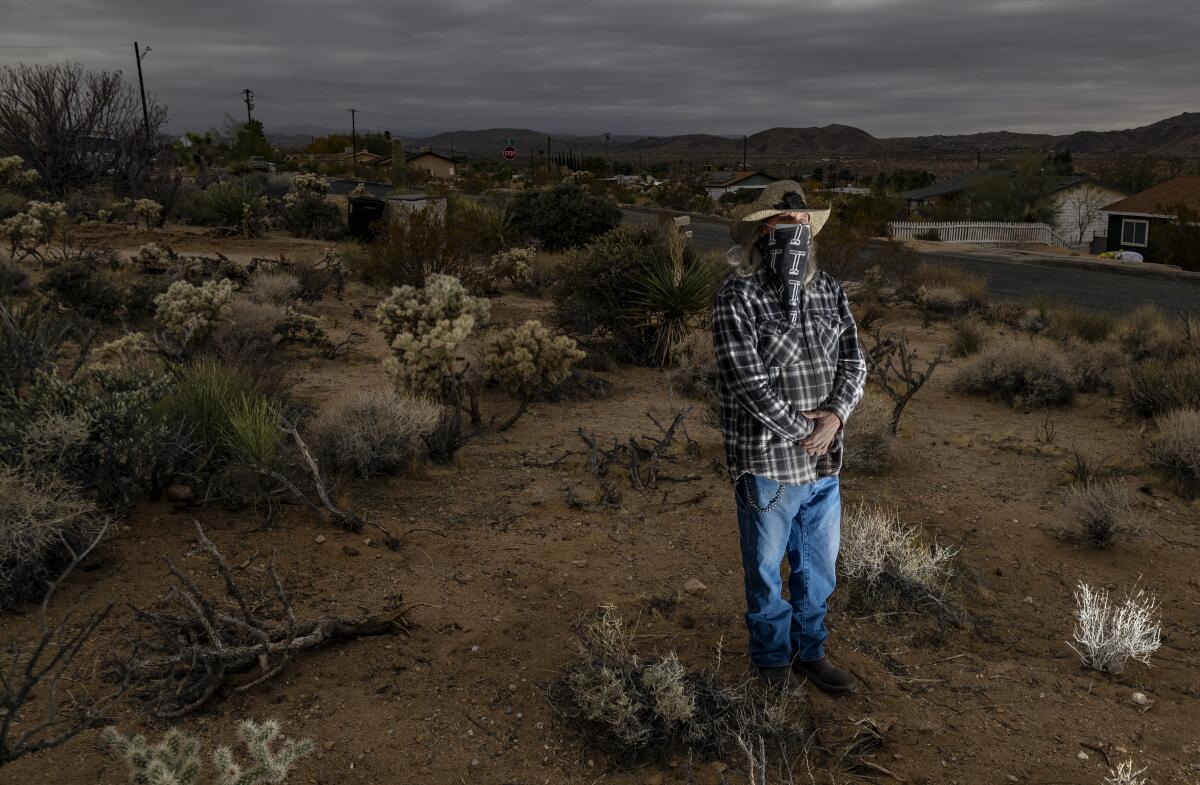
- Share via
The last words Kim Folsom told her husband over the phone Dec. 7, as she lay in the emergency room of Hi-Desert Medical Center in Joshua Tree, were terrifyingly simple.
“I’m scared.”
They were the last words that Billy, a retired mechanic for the city of Costa Mesa who was in the parking lot of the small hospital, ever expected his wife to say.
Kim called Billy just as he had returned from their home with some of her clothes. She was a former nurse with a radiant smile and matronly toughness that could calm down angry drunks at the biker bars she and Billy loved to visit. A three-year bout with pancreatic cancer hadn’t diminished her spirit or resolve.
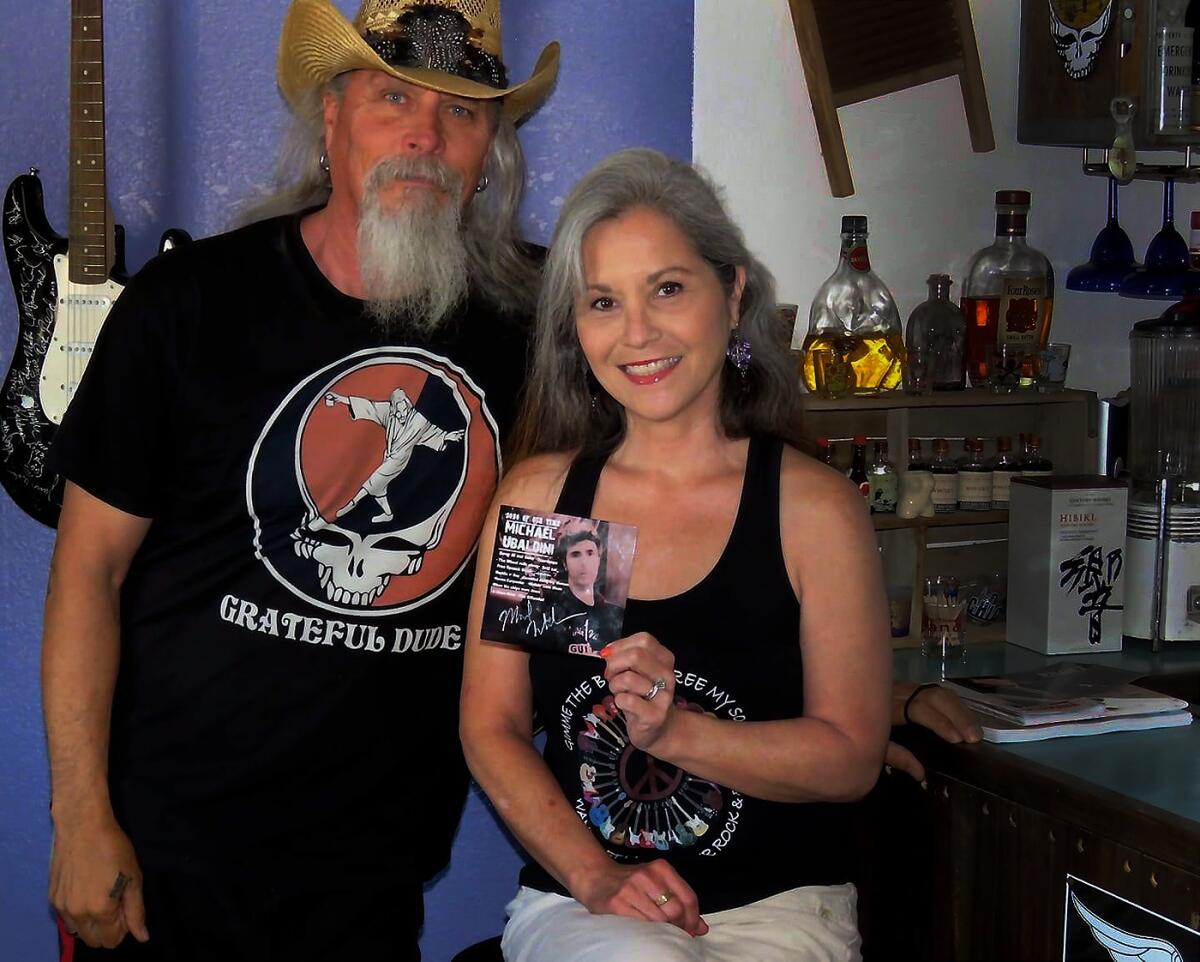
But now, as Billy prepared for a last, desperate dash to save his wife’s life, the two faced a sobering reality.
The coronavirus surge was going to kill her.
And she didn’t even have COVID-19.
She had woken up in a pool of blood earlier that day, so Billy had rushed her to Hi-Desert. The facility didn’t have the equipment to take care of Kim, he said. So the attending doctor began to call hospitals across the Inland Empire to see if Kim could be transferred to them.
None could accept her. They were swamped with COVID-19 cases.
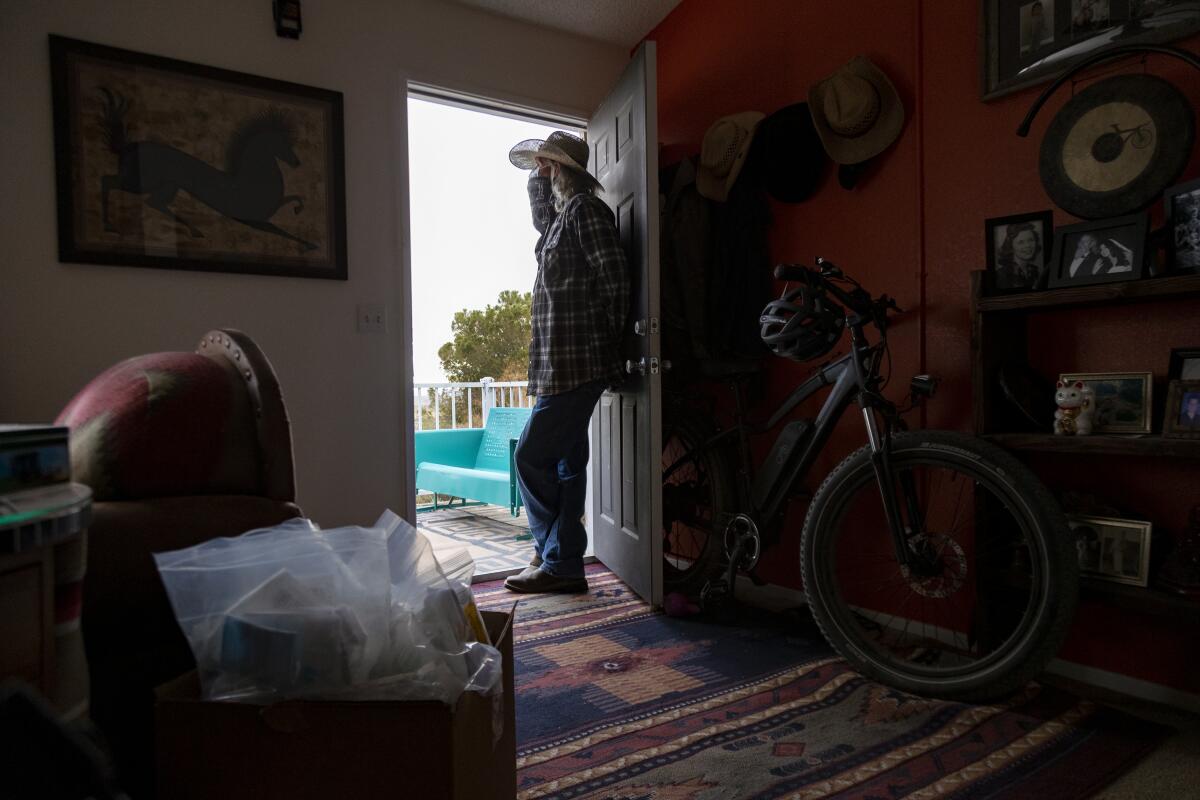
Everywhere, too full.
“The nurses were extremely distraught, and I’ve never seen them that way,” Billy told me five days later. “The doctor was getting frustrated.”
That’s when Billy volunteered to take Kim in his truck, strap on some off-road lights, and speed down California Route 62 toward Interstate 10. The plan: “get pulled over by police so we could get an escort” to the nearest hospital.
But that Hail Mary never came to pass. Shortly after their phone conversation, Kim’s health quickly deteriorated. She died at age 60, in the arms of Billy and her son.
Soon after, Billy went on Facebook, where he had kept friends apprised of what was going on, to post: “She’s gone.”
Nearly 12 hours had passed since the Folsoms had arrived at the emergency room.
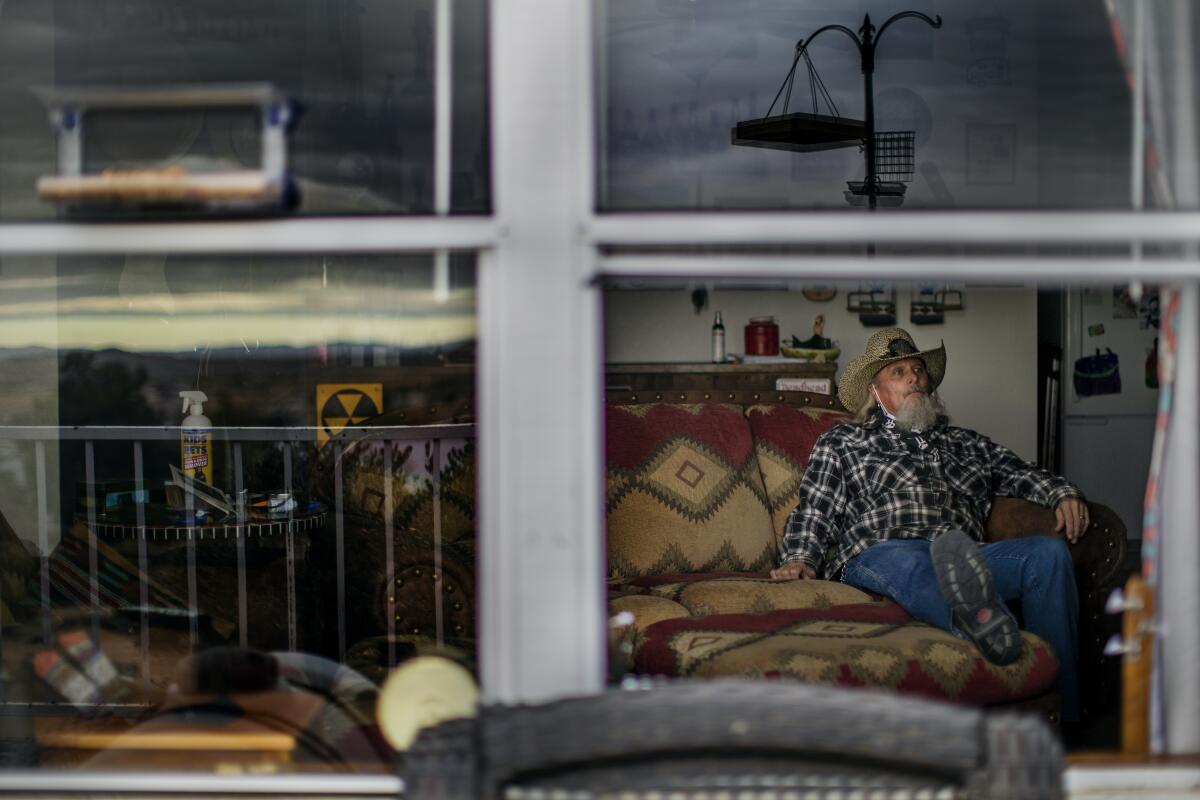
The pandemic had already hit the couple hard. Sixteen of their friends had died of COVID-19, including four of five members of a New Orleans blues group. Billy lost all of his gigs as a concert photographer in February. They hadn’t seen their grandchildren for months, and a UC Irvine clinical trial Kim had enrolled in for an experimental drug was canceled during the surge in June.
Now, the long-feared cratering of Southern California’s healthcare system due to the coronavirus is here — and it’s killing people like Kim, says Billy. He bears no ill will toward the Hi-Desert staff, whom he described “to a person [as] sympathetic, compassionate and very kind to us. … They did all they could.”
Instead, Billy lays Kim’s ordeal squarely on “maskholes.”
“We’re never going to know if she could’ve been saved,” said the 68-year-old, his blue eyes weary yet steely. “There was a surge because people didn’t wear masks. Those who don’t wear it can deny it all they want, but that’s the way it is.
“So, yeah, I’m angry,” he concluded. “Not just for my wife. For all of us.”
A representative for the Desert Care Network, which oversees Hi-Desert Medical Center, told me they “won’t be able to provide” a comment with regard to Kim Folsom’s death.
The ICU bed availability in Southern California currently stands at 0%; Riverside County, whose hospitals are closer to Joshua Tree than those in San Bernardino County, just set a new record for deaths reported in one day with 42.
Reports of ambulances waiting up to six hours to unload patients are becoming commonplace. In San Bernardino County, ambulances aren’t responding to all 911 calls. They simply can’t.
Dr. Mark Ghaly, California’s secretary of health and human services, said he’s “concerned” about stories like that of the Folsoms and worries that similar scenarios will increase as long as the surge continues.
“We know once ICUs become too overwhelmed, then the hospital wards will have similar issues, and then the emergency rooms,” he said. “When hospitals become overwhelmed, it’s not just COVID patients that might not receive care, but other emergency issues.”
::
I met Billy on a crisp, windy Saturday morning at his home, located up the road from the entrance to Joshua Tree National Park. He and Kim bought it three years ago, around the time she received her cancer diagnosis, so they could fight it together in an area they loved.
“Look outside my window,” Billy said from his living room, decorated with multiple guitars he had built. “Kim loved to sit here. There’s life all over the place.”
As if on cue, hummingbirds began to flit around one feeder, while pigeons swooped in to nibble from another. An antelope squirrel scurried across the windowsill to grab some peanuts Billy had left. The ritual was repeated throughout the two-hour interview; at one point, when Billy was deep into a point and had forgotten to replenish the treat pile, the squirrel knocked over a trinket.
He and Kim had instituted “germ control” long before the coronavirus on account of her cancer: hand sanitizer on the bar, disinfecting wipes around the house. They hunkered down along with Kim’s son and expected the United States to easily beat the pandemic.
But as weeks turned into months, and Kim’s condition worsened, all Billy could do was turn increasingly angry. The former Republican (he quit the GOP after the 2016 election of Donald Trump) had to unfriend longtime friends because they derided any lockdown orders, or simply labeled the coronavirus as fake news.
“They’re intelligent people. They’re not stupid,” he said. “But I call them fake patriots. They’ll say, ‘I’ll die for my country against tyranny, but I won’t wear a mask for my fellow human being.’ Well, you don’t have a country without caring for others.”
Kim, on the other hand, “was just worried. She knew what her nurse friends were going through.”
They traveled out of their home solely for doctor’s appointments and cruises through the desert. It was only in the last week of Kim’s life that the two truly experienced how society had changed during their quarantine.
On Dec. 2, Billy took Kim to Hi-Desert Medical Center for a blood transfusion after she felt woozy. While they checked in, a man barged in without a mask “insisting it was his right to do so.” Once he tried to shove past a security guard, Billy — whose shoulder-length hair and impressive Van Dyke beard make him look like a Hunter S. Thompson heavy — shot him a stare, and the man harrumphed off.
The following day, the Folsoms went to Kim’s oncologist at Hoag Hospital in Newport Beach. Billy had business in San Clemente, so he decided to pass by some old haunts along the coast. “All the bars were packed,” he said. “No one was wearing a mask. No one socially distanced. No one cared.”
Billy is now more fatigued than angry at a society where people still don’t believe the danger of disease “whose tentacles are now everywhere.” He had to pick up Kim’s body the morning after she passed because more dead were on the way. A request for her original birth certificate will take six to eight weeks instead of just one.
“And I don’t even know when I’m going to get Kim’s ashes,” Billy said.
He walked me out to show off a large camper he had bought this year in the hopes of traveling with Kim. Now, he wants to rent it out so others can enjoy it.
I asked him what he wanted people to take from Kim’s death. His eyes watered, but his voice was firm.
“I hope they learn,” he said, “that her last days were chaos.”
More to Read
Sign up for Essential California
The most important California stories and recommendations in your inbox every morning.
You may occasionally receive promotional content from the Los Angeles Times.
